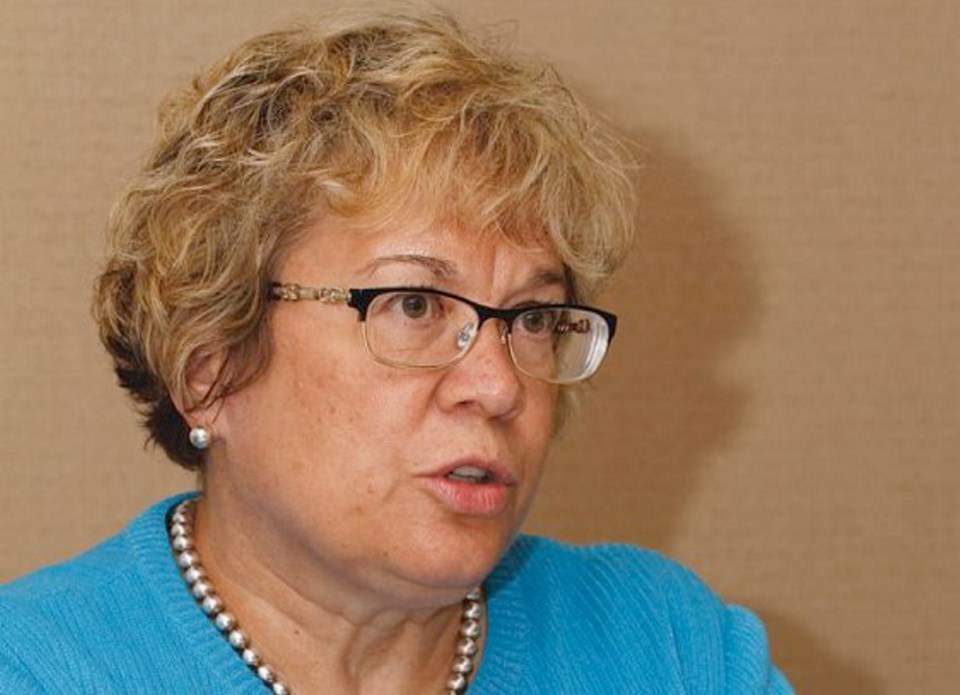Enbridge Northern Gateway pipeline project leader Janet Holder is still confident the controversial project can begin construction in 2015 as initially planned.
But federal approval last week for the project was a significant milestone for the proposed pipeline, a significant amount of work remains to be done, she said.
"We've been at this for 12 years, in the regulatory process for four," Holder said. "The next 12-15 months will be some of the most intense work we have to do. We have 209 conditions [as part of the federal government approval], 113 of them have to be done before construction begins. Over 60 of the 113 require more consultation."
Holder said she will continue to travel through B.C. and Alberta to meet with First Nations and community stakeholders.
Despite visible and vocal opposition to the project - especially in B.C. -Holder said she believes public opinion on the project is changing.
"We have seen the needle swing. There has been a lot more positive media," she said.
Holder said she's met a lot of people who have told her they support the project. And the more people learn about the project, generally the more they support it.
"One thing we need to focus on is why we're doing this, we're doing this because Canada needs oil offshore. We have 10 funding partners who are asking us to do this," she said.
Before construction can begin, Enbridge still needs approval from the provincial government and the federal and provincial decisions need to pass legal challenges in court.
Holder said Enbridge is in discussions with the provincial government on how to meet the five conditions set out my Premier Christy Clark in 2012. The five conditions include completing the environmental review process, world-class oil spill response plans for the coast; world-class oil spill prevention along the pipeline route; addressing legal requirements regarding First Nations treaty rights; and ensuing B.C. receives a fair share of the economic returns on the pipeline.
"We'll do what's necessary to meet these conditions," Holder said. "[The provincial government] is currently working to refine and define those conditions."
Enbridge is working with industry players to define what world-class spill responses look like, she added, and supports successfully meeting all of the conditions.
The company is also prepared to be an active participant in any legal challenges, but expects they, too, can be resolved in a timely manner.
"It will probably take less than a year, from what I understand of the legal process," she said.
In the meantime, Enbridge will continue to engage with First Nations and other groups.
"It's just more of what we've been doing for the last two years," she said.
PIPELINES NEEDED
Enbridge brought Canadian Energy Research Institute president Peter Howard to speak in Prince George on Wednesday. The independent, Calgary-based research organization examines energy policy.
"The reason we're looking at Northern Gateway and the reason we're looking at going east is because America doesn't need all the oil we produce," Howard said.
At the current rate of growth in production in Alberta and Saskatchewan, it will only take two years to fill the export capacity of the proposed Enbridge Northern Gateway pipeline, he said. Canada needs all five currently-proposed oil pipelines to meet the demand for transportation capacity, he said.
If not, the already-exponential growth in oil by rail could grow further, he said.
"Last year we sent 160,000 barrels a day by rail into the Gulf of Mexico," Howard said.
If Canada's infrastructure for exporting oil doesn't keep up with production, than the price difference between oil sold in Edmonton and the world price will increase until "we're giving it away," he said.
There is potential for Canada to look at exporting refined oil products instead of just unprocessed crude, he added.
"As it stands today we have enough refining capacity to meet all our domestic needs for diesel, jet fuel and gasoline. On the B.C. coast there has been proposals for three refineries. I think one makes sense," he said.
"Once you have access to a marine terminal you can ship anything anywhere in the world quickly and cheaply. Putting diesel onto a boat and sending it to India makes sense, but you have to get the project built. What they are lacking is the $5 billion to build the thing... and a pipeline to get it there."



